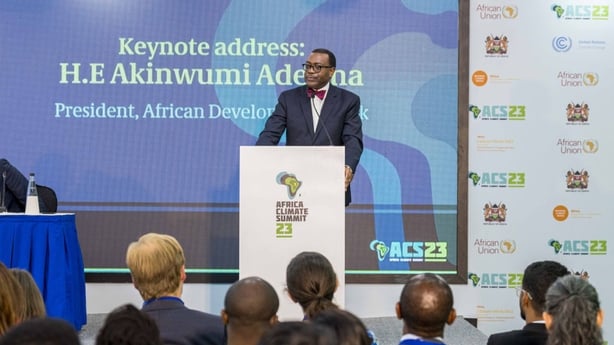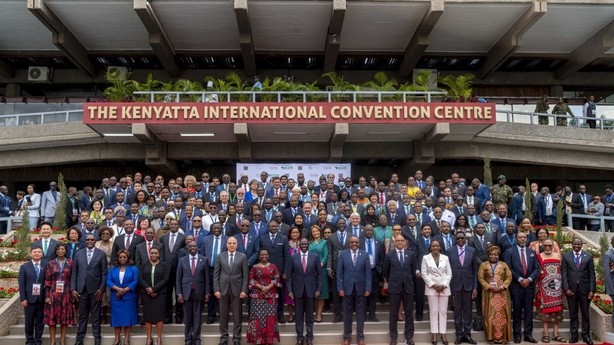The first Africa Climate Summit has opened in Nairobi, Kenya, as leaders from across the continent meet to address the challenges of climate change and carve a path toward a more sustainable future.
The event brings together heads of state, environmental experts, and policymakers to tackle issues which are threatening livelihoods, food security, and economic stability across the region.
Over 20,000 delegates will be attending the three-day event.
During the opening ceremony, Kenyan President William Ruto stressed Africa's disproportionate vulnerability to climate change.
Africa contributes the least to global carbon emissions, emitting a mere 1 tonne of CO2 per person annually.
This amounts to 3.8% of global greenhouse gas emissions, compared to 19% in the US, 13% from Europe and 23% from China.
President Ruto emphasised that the summit represents a unique opportunity for African nations to forge a united front in addressing these challenges head-on.
"It is because we all have a shared stake in the Earth's ability to sustain life that we must envision together a future that embraces the values of equality, human security, and shared prosperity," President Ruto declared.
He added that Africa possesses natural assets and resources as well as a young and growing workforce that is dedicated to their pursuit of innovation and enterprise.

During the summit, President of the African Development Bank Akinwumi Adesina announced the decision to donate a $1 billion youth fund that will focus on climate adaptation.
Donations like these will be used for various climate-related projects and initiatives such as renewable energy development and climate adaptation projects and help mitigate the impacts of climate change in African countries.
The central theme of the summit revolves around building resilience to the impacts of climate change. In recent years, Africa has been grappling with a myriad of climate-related challenges, including extreme weather events, desertification, and dwindling water resources.
Speaking at the summit Director of the United Nations Framework Convention on Climate Change (UNFCCC) Simon Steill emphasised the global responsibility to mitigate climate change's effects.
He stressed that the summit provides an invaluable opportunity to discuss ways to transition to a low-emission economy and collaborate on effective solutions.
"I want to see Africa leading the way in climate action on three pivotal fronts," he said.
"First, it must enable governments to amplify their contributions and commitments. Second, strengthen regional bonds and collaboration. And third, and perhaps most profoundly, empower local transformation."

President Ruto highlighted Africa's critical role in accelerating global decarbonisation efforts due to its natural resources such as carbon sinks.
Carbon sinks are natural or artificial systems that absorb and store more carbon from the atmosphere than they release as carbon dioxide, effectively helping to cleanse the environment.
President Ruto also stressed that the summit was not an opportunity to catalogue grievances and list problems, but to scrutinise ideas, and unlock solutions.
"The very format of this summit has been designed to facilitate such engagements. Over the next three days, be ready to be challenged in this dynamic ecosystem of dialogue and discovery."
As the Africa Climate Summit 2023 unfolds, it is clear that the collective commitment to addressing climate change and fostering resilience is stronger than ever.
The summit represents a unique opportunity for African nations to chart a sustainable course forward, demonstrating that the continent is not only ready but determined to be a driving force in the global fight against climate change.
With leaders and experts united in their resolve, there is hope that this gathering will mark a turning point in Africa's journey towards a more sustainable and resilient future.







